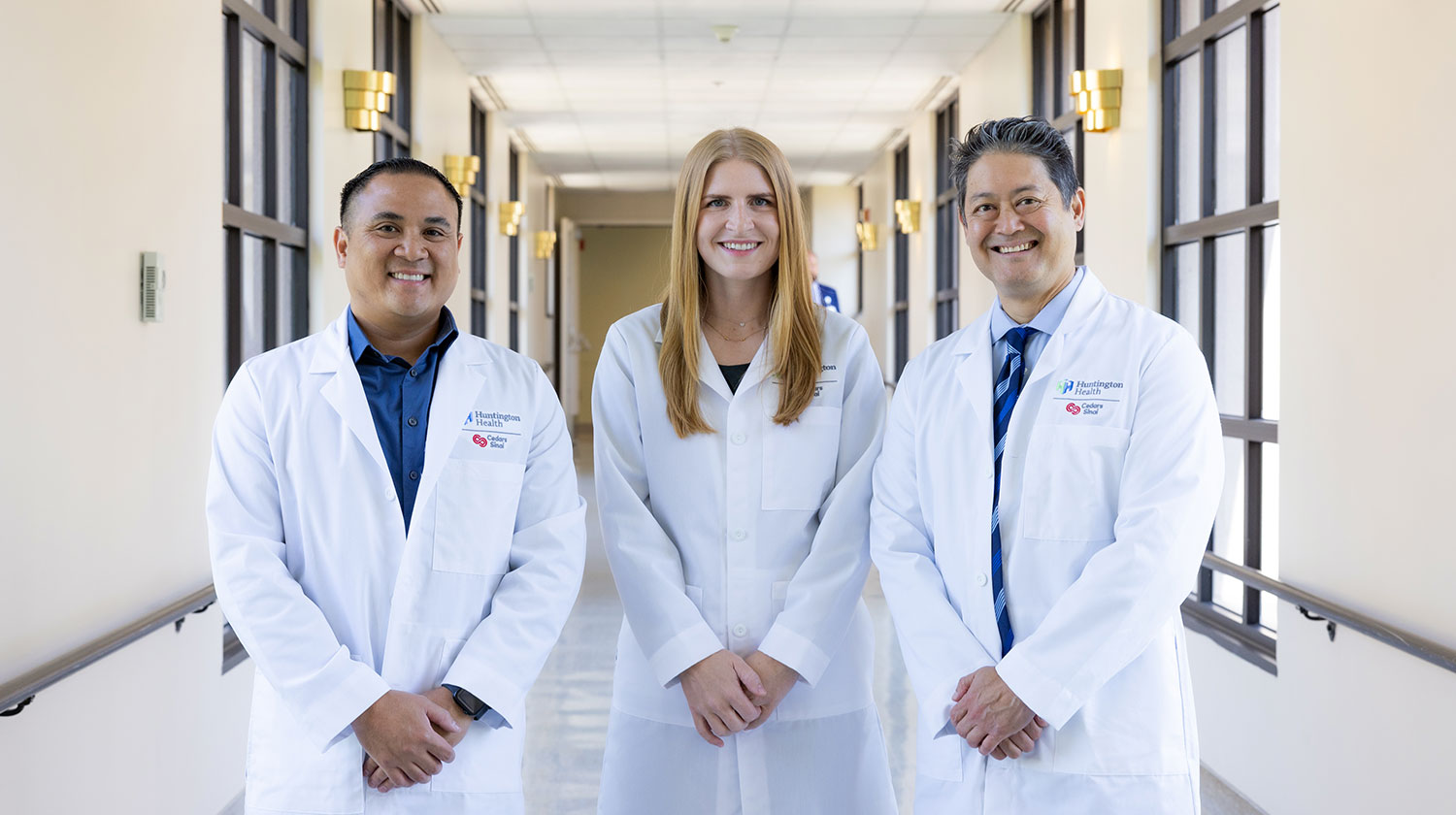It’s Vascular Disease Awareness Month! You might be wondering, what exactly is vascular surgery? Here’s the short of it according to the Society of Vascular Surgeons:
Your blood vessels – arteries carrying oxygen-rich blood and veins carrying blood back to the heart – are the roadways of your circulatory system. Without smoothly flowing blood, your body cannot function. Conditions such as hardening of the arteries can create “traffic jams” in your circulatory system, obstructing the flow of blood to any part of the body.
Huntington Health recently sat down with two of our vascular surgeons, Theodore Teruya, MD, and Sally Schonefeld, MD, to learn a bit more.
How do you know if you might have symptoms of vascular disease?
“In general, if you have pain in your legs when you walk or stand for long periods of time, you may have a problem with your blood vessels,” says Dr. Teruya. “Other signs of potential vascular issues are leg swelling, varicose veins or non-healing wounds of the leg or feet.”
Why is it important to speak to your physician about these types of symptoms and conditions?
Dr. Schonefeld explains “Untreated symptomatic venous insufficiency can progress to chronic leg swelling, skin changes, and ulceration. Treatment directed by vascular surgeons can involve non-invasive management or procedures to prevent or reverse progression of disease.”
If you are experiencing any of these symptoms, please talk to your physician about your options for care, many of which are non-invasive and in the office setting. For the latest news on vascular surgery at Huntington Health, go to: Huntington Health, an affiliate of Cedars-Sinai, Welcomes Two Pasadena-based Vascular Surgeons | Huntington Hospital
 English
English Espanol
Espanol 简体中文
简体中文 Tagalog
Tagalog հայերեն
հայերեն 한국인
한국인 Tiếng Việt
Tiếng Việt فارسی
فارسی русский
русский 日本
日本 عربي
عربي